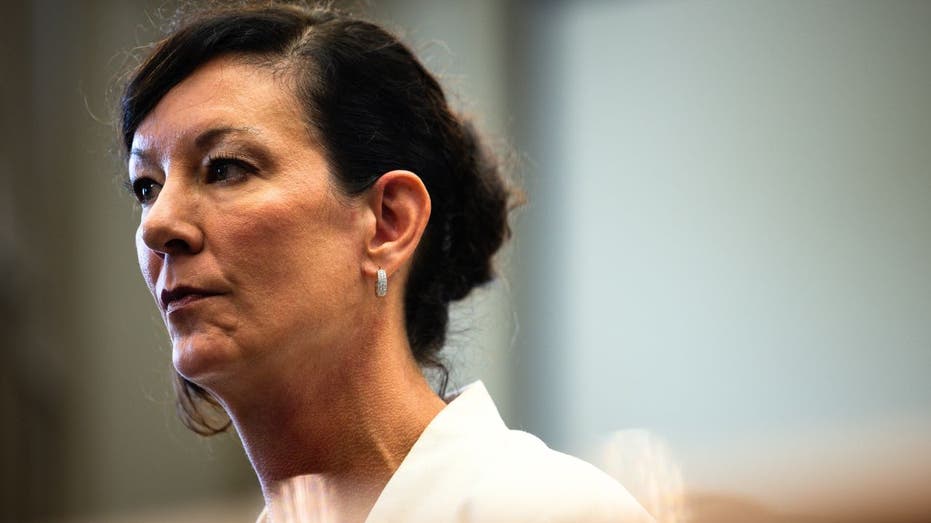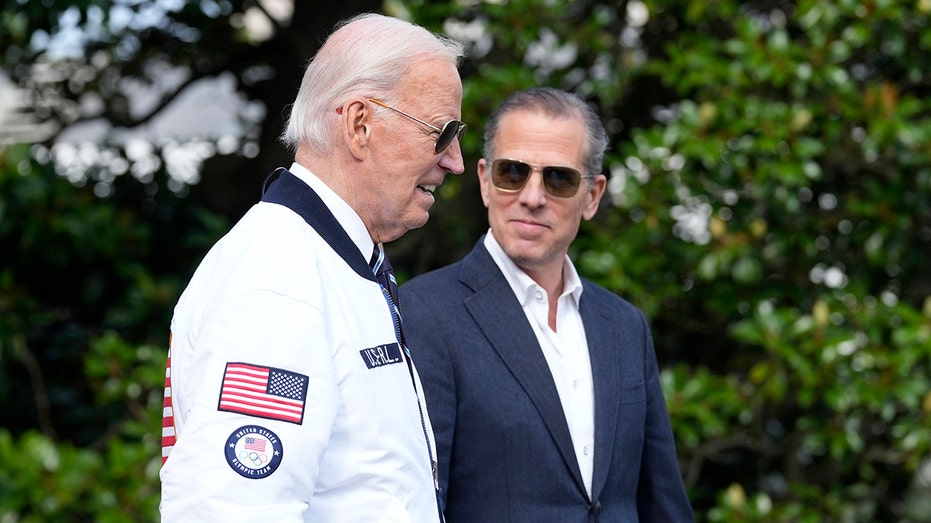Here's where all the firms in the Trump-Big Law fight stand

Alex Wong/Getty Images
- President Donald Trump has issued a wave of executive orders targeting high-profile law firms.
- Trump has restricted clearances — ultimately limiting the way they do business — for firms that have clashed with his administration.
- While some firms have agreed to Trump's demands, others have sued the administration.
As Donald Trump has taken aim at Big Law law firms in recent weeks, some firms have made deals with the president, while others are refusing to throw in the towel.
The president's wide-reaching orders have prompted reviews of each firm's government contracts, canceling security clearances for some firm employees and, in some cases, blocking them from entering federal buildings — including courthouses.
Trump has accused the Big Law firms — including Paul Weiss, Perkins Coie, and Covington & Burling, among others — of weaponizing the judicial system. His orders have, in turn, made it harder for the firms to continue conducting business as usual. Several firms have alleged in lawsuits that the executive orders intended to chill free speech and deter clients from doing business with them. Others have agreed to work with the administration to avoid punitive executive actions against them.
The president has singled out a string of law firms that he says have wronged him in some capacity, have worked with his political opponents, or have had diversity initiatives that are counter to his anti-DEI efforts.
What's more, Trump instructed Attorney General Pam Bondi to identify firms with "frivolous" cases against the administration so that they could be targeted for further executive action.
Whether they're on the ropes or down for the count, here are the firms Trump is taking on, how they've responded, and where the legal process stands for those who have challenged him in court.
Paul Weiss
On March 14, Trump issued an executive order directed at the prominent New York City-based law firm Paul Weiss, where he railed against the attorney Mark Pomerantz and decried what he said was "unlawful discrimination" from diversity, equity, and inclusion initiatives at the firm.
Pomerantz previously left Paul Weiss to aid the Manhattan District Attorney's office as it probed Trump's finances. When Pomerantz resigned as special district attorney in February 2022, he wrote in a departing letter that he believed Trump was "guilty of numerous felony violations."
In the order, Trump sought to revoke security clearances and bar access to government buildings for attorneys of the firm. Such a sweeping directive could also include federal courthouses, a scenario that would be detrimental to the firm's work.
However, Trump just days later rescinded the executive order and announced an agreement with Paul Weiss chairman Brad Karp. Trump said the firm would provide $40 million in pro bono work for causes that the administration supports and end its DEI policies.
Karp received a heap of criticism, with many questioning why Paul Weiss didn't challenge Trump's order. In an email to the firm's attorneys, he said there was a desire from the outset to challenge the directive. In the same email, though, Karp argued that even if Paul Weiss won in court, it would become "persona non grata" with the Trump White House, which could prompt a wave of clients to switch to other firms and subsequently threaten the viability of the firm.
"It was very likely that our firm would not be able to survive a protracted dispute with the administration," Karp wrote in the email.
Perkins Coie
On March 6, Trump targeted the law firm Perkins Coie, issuing an executive order to suspend the security clearances of the firm's attorneys and criticizing its diversity and inclusion policies.
In the order, Trump called out what he said was the firm's "dishonest and dangerous activity."
The president, in his order, highlighted the firm's representation of former Secretary of State Hillary Clinton — his rival in the 2016 presidential election — during that year's tumultuous campaign.
However, Perkins Coie struck back, filing a lawsuit against the administration for actions that it said "violates core constitutional rights, including the rights to free speech and due process."
"At the heart of the order is an unlawful attack on the freedom of all Americans to select counsel of their choice without fear of retribution or punishment from the government," Perkins Coie managing director Bill Malley said in a statement in March. "We were compelled to take this action to protect our firm and our clients."
The day after Perkins Coie filed its suit, a federal judge agreed to temporarily block part of the president's executive order.
Perkins Coie, in a statement, said the ruling was "an important first step in ensuring this unconstitutional Executive Order is never enforced."
Covington & Burling LLP
Trump on February 25 signed a memorandum to evaluate federal contracts and direct the suspension of security clearances for some employees at Covington & Burling, a DC-based law firm known for its antitrust work.
The president in the memo said he was suspending the clearances of individuals who advised former special counsel Jack Smith.
Smith brought two federal cases against Trump — one for election interference in the 2020 presidential election and the other for retaining classified documents — but both were dropped after the president won reelection to a second term in November 2024.
In the memo, Trump went after individuals whom he said were "involved in the weaponization of government" and named Peter Koski, a lawyer at Covington representing Smith.
A Covington spokesperson in March said it was representing Smith in an "individual" capacity.
"We recently agreed to represent Jack Smith when it became apparent that he would become a subject of a government investigation," the spokesperson said in a statement. "We look forward to defending Mr. Smith's interests and appreciate the trust he has placed in us to do so."
Skadden, Arps, Slate, Meagher & Flom LLP
Skadden made a deal with Trump, acting before it was singled out in any executive orders. The firm promised to provide $100 million in pro bono legal services "to causes that the President and Skadden both support," Trump announced on March 28.
Skadden also affirmed its commitment to merit-based hiring and employee retention, Trump said. The firm also agreed that it would refrain from engaging in "illegal DEI discrimination," according to a copy of the agreement that Trump shared on Truth Social.
In a statement, Jeremy London, Skadden's executive partner, said the firm "engaged proactively" with the administration to reach the agreement.
"We firmly believe that this outcome is in the best interests of our clients, our people, and our Firm," London said.
Speaking from the White House, Trump referred to the deal as "essentially a settlement."
Within the firm, some associates and employees expressed frustration about the deal, calling it the beginning of the end for Skadden.
In the weeks leading up to the agreement, Skadden associate Rachel Cohen publicly resigned and circulated an open letter among associates at top firms calling out their employers for what she has described as inaction in the face of the administration's attacks.
After the deal was announced, another employee, Brenna Frey, also resigned publicly in an announcement on LinkedIn.
Elias Law Group
The chair of Elias Law Group took a different approach after it was targeted by the administration.
Trump named the Elias Law Group in his "frivolous" lawsuits memo, formally titled "Preventing Abuses of the Legal System and the Federal Court."
It claimed that the law firm was "deeply involved in the creation of a false 'dossier' by a foreign national designed to provide a fraudulent basis for Federal law enforcement to investigate a Presidential candidate in order to alter the outcome of the Presidential election."
The memo went on to say that the firm "intentionally sought to conceal the role of his client — failed Presidential candidate Hillary Clinton — in the dossier."
Marc Elias, the Democratic election lawyer who founded and chairs the group, released a statement swinging back at Trump, whose actions target "every attorney and law firm who dares to challenge his assault on the rule of law," he said.
"President Trump's goal is clear," Elias said in the statement. "He wants lawyers and law firms to capitulate and cower until there is no one left to oppose his Administration in court."
Adding that American democracy is in a state of "peril," Elias said his law firm would not cower.
"Elias Law Group will not be deterred from fighting for democracy in court," he said. "There will be no negotiation with this White House about the clients we represent or the lawsuits we bring on their behalf."
Jenner & Block
Trump signed an order naming Jenner & Block on March 25 that revoked security clearances from the firm's attorneys and ordered a review of the firm's contracts with the federal government.
Trump's order singled out Andrew Weissmann, a former Jenner attorney who Trump accused of building his career around "weaponized government and abuse of power." Weissmann was a lead prosecutor in Robert Mueller's Special Counsel's Office, which investigated Trump's 2016 presidential campaign and its ties to Russia.
Jenner issued a statement calling the order an "unconstitutional executive order that has already been declared unlawful by a federal court."
"We remain focused on serving and safeguarding our clients' interests with the dedication, integrity, and expertise that has defined our firm for more than one hundred years and will pursue all appropriate remedies," the statement from Jenner said.
Jenner also fought back with a lawsuit. The firm is represented by Cooley LLP, a liberal-leaning firm that has hired lawyers from Democratic administrations.
On March 28, Judge John D. Bates of the US District Court for the District of Columbia issued a temporary restraining order that keeps the Trump administration from taking action against Jenner. On April 1, Bates extended this order until a final judgement has been made. Both the Justice Department and Jenner consented to the extension.
Following the ruling, Jenner said in a statement that the order holds "no legal weight."
"We will continue to do what we have always done, our job as lawyers and fearless advocates for our clients," the firm said.
WilmerHale
The Trump administration has also targeted WilmerHale, which employed Mueller and other lawyers who worked with the Justice Department to investigate ties between Russia and Trump's 2016 campaign.
On March 27, Trump signed an executive order that suspended security clearances for WilmerHale employees and limited their access to federal buildings. The order also revoked WilmerHale's government contracts for engaging in "partisan representations to achieve political ends" and "efforts to discriminate on the basis of race."
In contrast with other firms that have inked deals with the president, WilmerHale filed a lawsuit.
The firm hired Paul Clement, the conservative legal superstar of the firm Clement & Murphy, to fight back against the Trump administration.
"This lawsuit is absolutely critical to vindicating the First Amendment, our adversarial system of justice, and the rule of law," Clement told Business Insider in a statement.
On the afternoon of March 28, Judge Richard J. Leon of the US District Court for the District of Columbia approved a motion for a temporary restraining order to halt executive actions against WilmerHale.
"There is no doubt this retaliatory action chills speech and legal advocacy, or that it qualifies as a constitutional harm," Leon wrote.
A spokesperson for WilmerHale called the executive order unconstitutional and praised the court's "swift action."
Milbank
On April 2, Trump announced on Truth Social that he had struck a preemptive deal with Milbank without targeting the firm for executive action.
The terms of the deal, according to the president's announcement, include the firm's agreement to end any DEI-based hiring practices, and to perform at least $100 million worth of pro bono legal work to advance causes supported by the Trump administration, such as "assisting veterans" and "combatting antisemitism."
In addition, Milbank's pro bono committee will ensure the firm takes on cases representing "the full political spectrum, including Conservative ideals," and commits that it "will not deny representation to clients" based on the personal political views of individual lawyers, per Trump's announcement.
"Milbank LLP approached President Donald J. Trump and his Administration, stating their resolve to help end the Weaponization of the Justice System and the Legal Profession," reads a statement from the White House included in Trump's post. "The President continues to build an unrivaled network of Lawyers, who will put a stop to Partisan Lawfare in America, and restore Liberty and Justice FOR ALL."
Milbank's chairman, Scott Edelman, said in a statement posted by Trump that, after a "constructive dialogue," the firm was "pleased we were so quickly able to find common ground" with the administration.
When reached by Business Insider, a spokesperson for the firm provided a letter sent by Edelman to Milbank's staff in which he said the agreement "is very much in Milbank's interest."
"The Administration's expressed concerns about big law firms, and in some cases its entry of Executive Orders against particular firms, have created uncertainty for law firms like ours," Edelman's letter to staff reads. "With this agreement, we believe we have gone a long way to putting these issues behind us. But we have done so in a way that allows us to continue to focus on the Firm's values and missions, including with respect to pro bono and our hope to foster an inclusive, non-discriminatory community where all of our members have an equal opportunity to succeed."
Edelman added: "Having now reached an agreement with the Administration, we can continue to do what we do best — focus on providing the best possible advice, counseling and service to our clients."
Susman Godfrey
On April 9, Trump signed an executive memorandum targeting Susman Godfrey, a specialized litigation firm.
In a fact sheet, the White House accused Susman of spearheading "efforts to weaponize the American legal system and degrade the quality of American elections."
Trump's order immediately suspends any Susman security clearances held by the firm's employees. The federal government will also terminate any contracts with the firm.
The firm's hiring practices will also be reviewed "to ensure compliance with civil rights laws against racial bias."
A Susman representative did not immediately respond to a request for comment from BI.
Willkie Farr & Gallagher
Willkie Farr & Gallagher, which employs Doug Emhoff, husband of former Vice President Kamala Harris, struck a deal with the administration, pledging at least $100 million in pro bono legal work for conservative causes, Trump said in an April 1 social media post.
"Willkie Farr & Gallagher LLP proactively reached out to President Trump and his Administration, offering their decisive commitment to ending the Weaponization of the Justice System and the Legal Profession," the White House said, according to Trump's post on Truth Social.
The firm's ties to Trump go to the 1990s when it represented the then real estate developer in a bankruptcy case.
In 2023, Willkie brought Tim Heaphy as partner. Heaphy was the former chief investigative counsel for the congressional committee that investigated the January 6, 2021, attacks on the Capitol.
The firm also represents X, Elon Musk's social media platform.
Trump said that Willkie Farr & Gallagher also committed to "Merit-Based Hiring, Promotion, and Retention," which touches on the Trump's efforts to dismantle DEI initiatives.
A representative for Willkie Farr & Gallagher did not respond to a request for comment.




